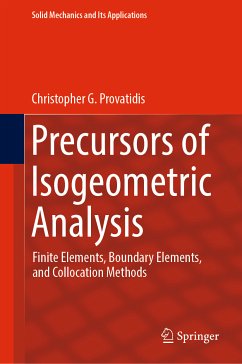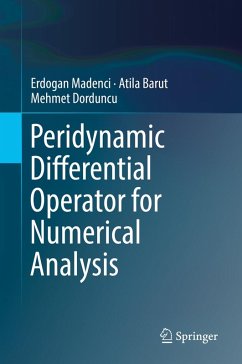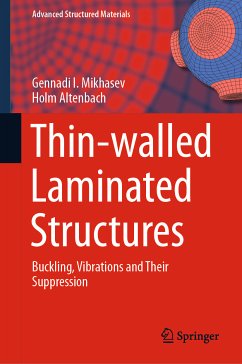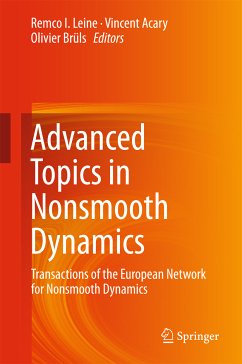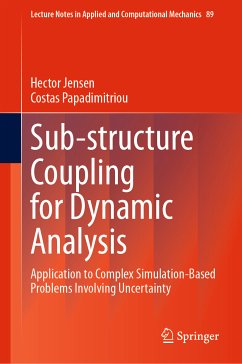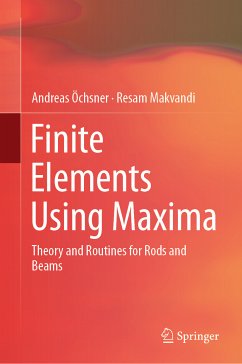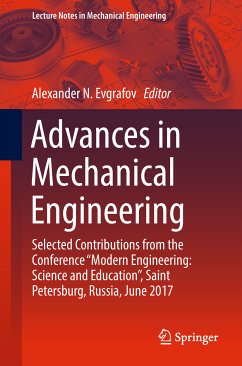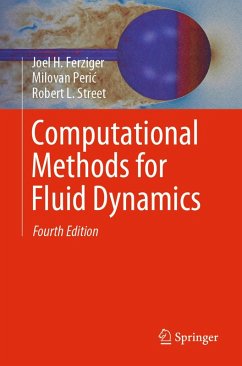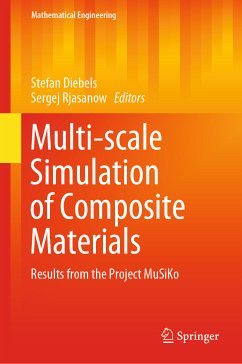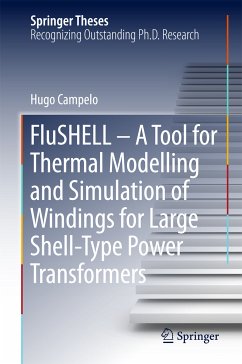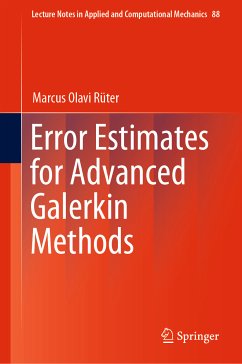
Error Estimates for Advanced Galerkin Methods (eBook, PDF)
Versandkostenfrei!
Sofort per Download lieferbar
72,95 €
inkl. MwSt.
Weitere Ausgaben:

PAYBACK Punkte
36 °P sammeln!
This monograph provides a compendium of established and novel error estimation procedures applied in the field of Computational Mechanics. It also includes detailed derivations of these procedures to offer insights into the concepts used to control the errors obtained from employing Galerkin methods in finite and linearized hyperelasticity. The Galerkin methods introduced are considered advanced methods because they remedy certain shortcomings of the well-established finite element method, which is the archetypal Galerkin (mesh-based) method. In particular, this monograph focuses on the system...
This monograph provides a compendium of established and novel error estimation procedures applied in the field of Computational Mechanics. It also includes detailed derivations of these procedures to offer insights into the concepts used to control the errors obtained from employing Galerkin methods in finite and linearized hyperelasticity. The Galerkin methods introduced are considered advanced methods because they remedy certain shortcomings of the well-established finite element method, which is the archetypal Galerkin (mesh-based) method. In particular, this monograph focuses on the systematical derivation of the shape functions used to construct both Galerkin mesh-based and meshfree methods. The mesh-based methods considered are the (conventional) displacement-based, (dual-)mixed, smoothed, and extended finite element methods. In addition, it introduces the element-free Galerkin and reproducing kernel particle methods as representatives of a class of Galerkin meshfree methods. Including illustrative numerical examples relevant to engineering with an emphasis on elastic fracture mechanics problems, this monograph is intended for students, researchers, and practitioners aiming to increase the reliability of their numerical simulations and wanting to better grasp the concepts of Galerkin methods and associated error estimation procedures.
Dieser Download kann aus rechtlichen Gründen nur mit Rechnungsadresse in A, B, BG, CY, CZ, D, DK, EW, E, FIN, F, GR, HR, H, IRL, I, LT, L, LR, M, NL, PL, P, R, S, SLO, SK ausgeliefert werden.



